LIVE: Gaza’s displaced brace for winter storm as Israel kills one
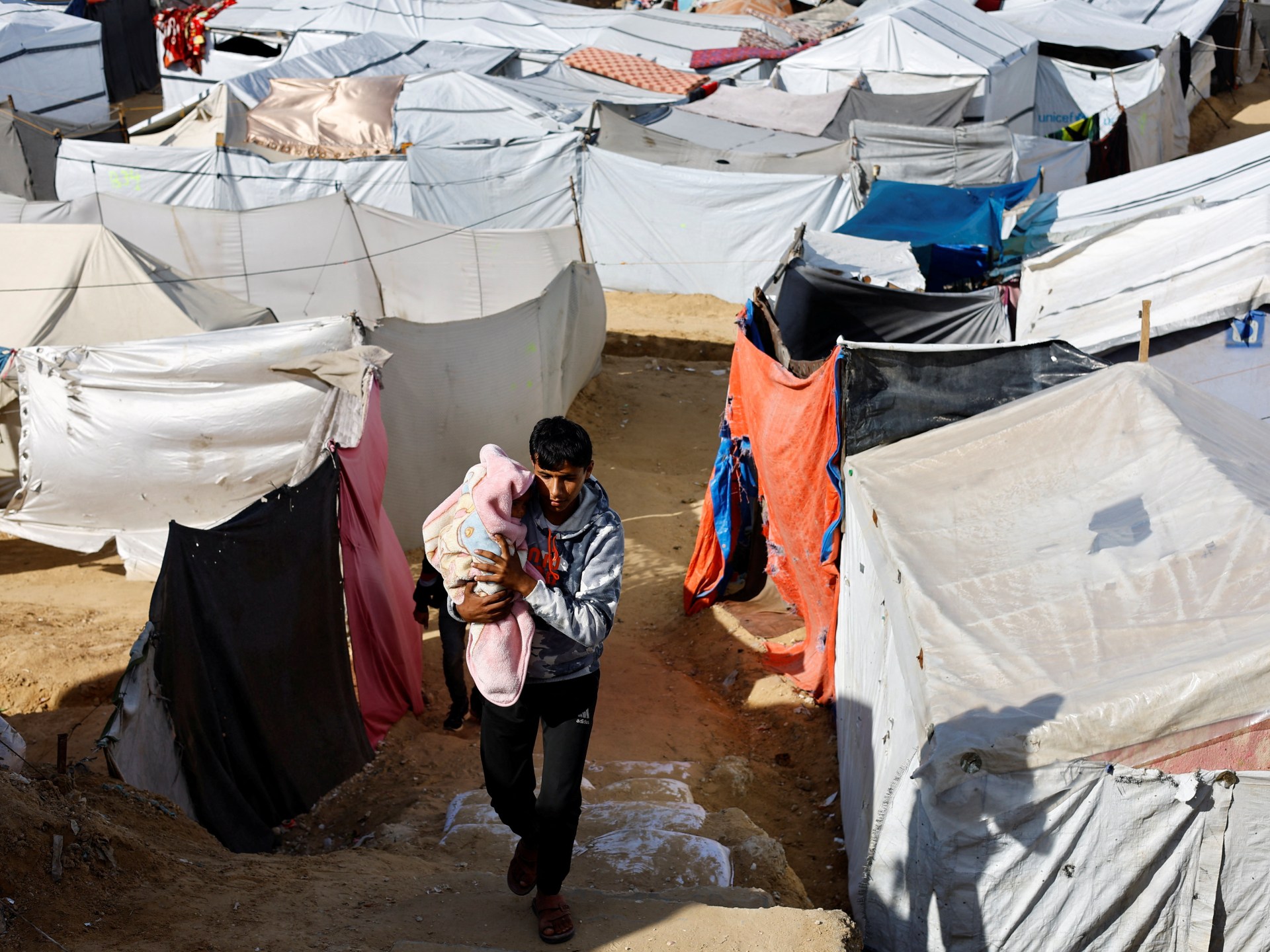

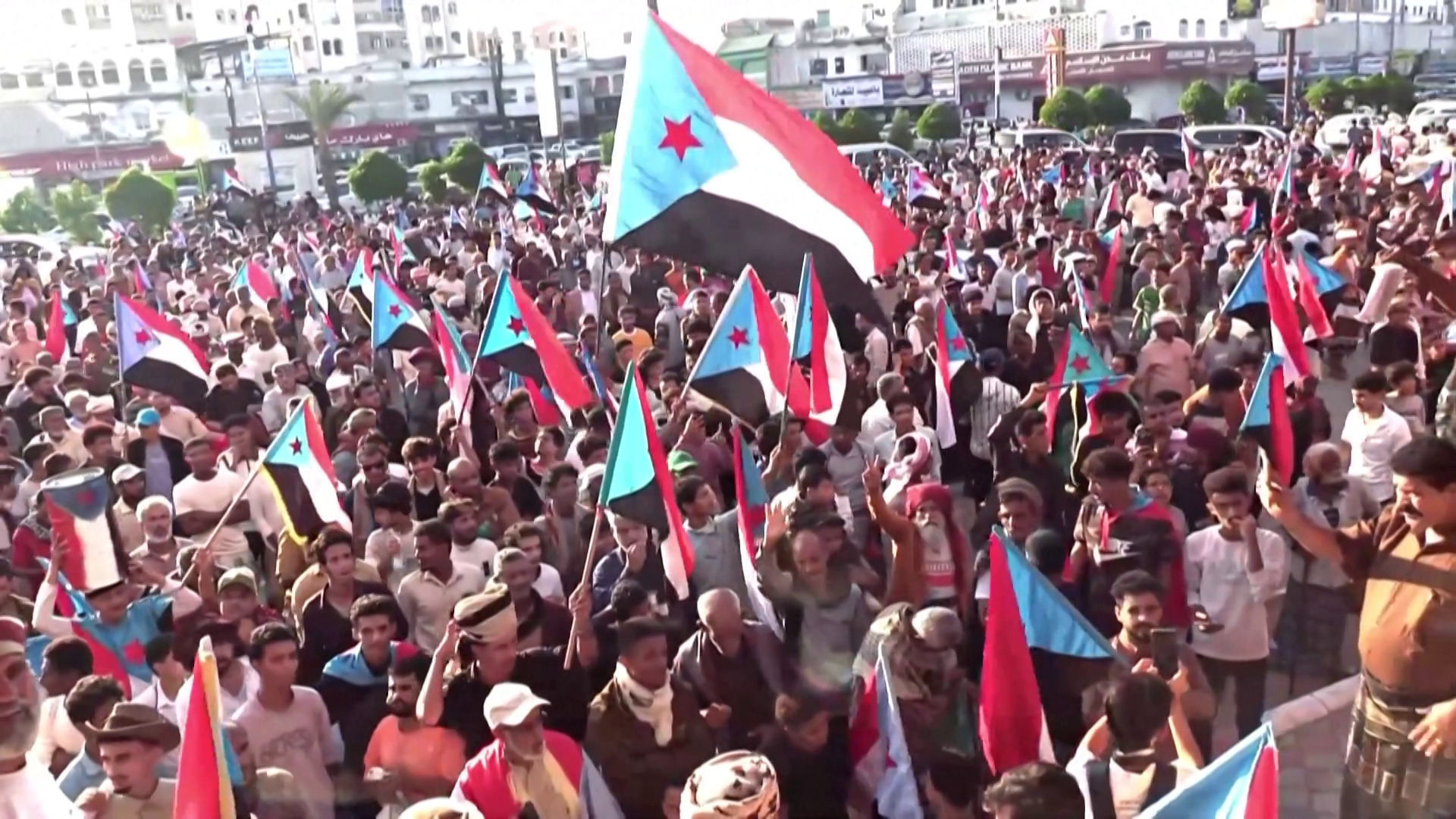
Yemen’s Southern Transition Council has declared itself in control of the country’s south, raising fears they will declare independence. Members of the internationally-backed government have fled. So what is the STC? Soraya Lennie explains.
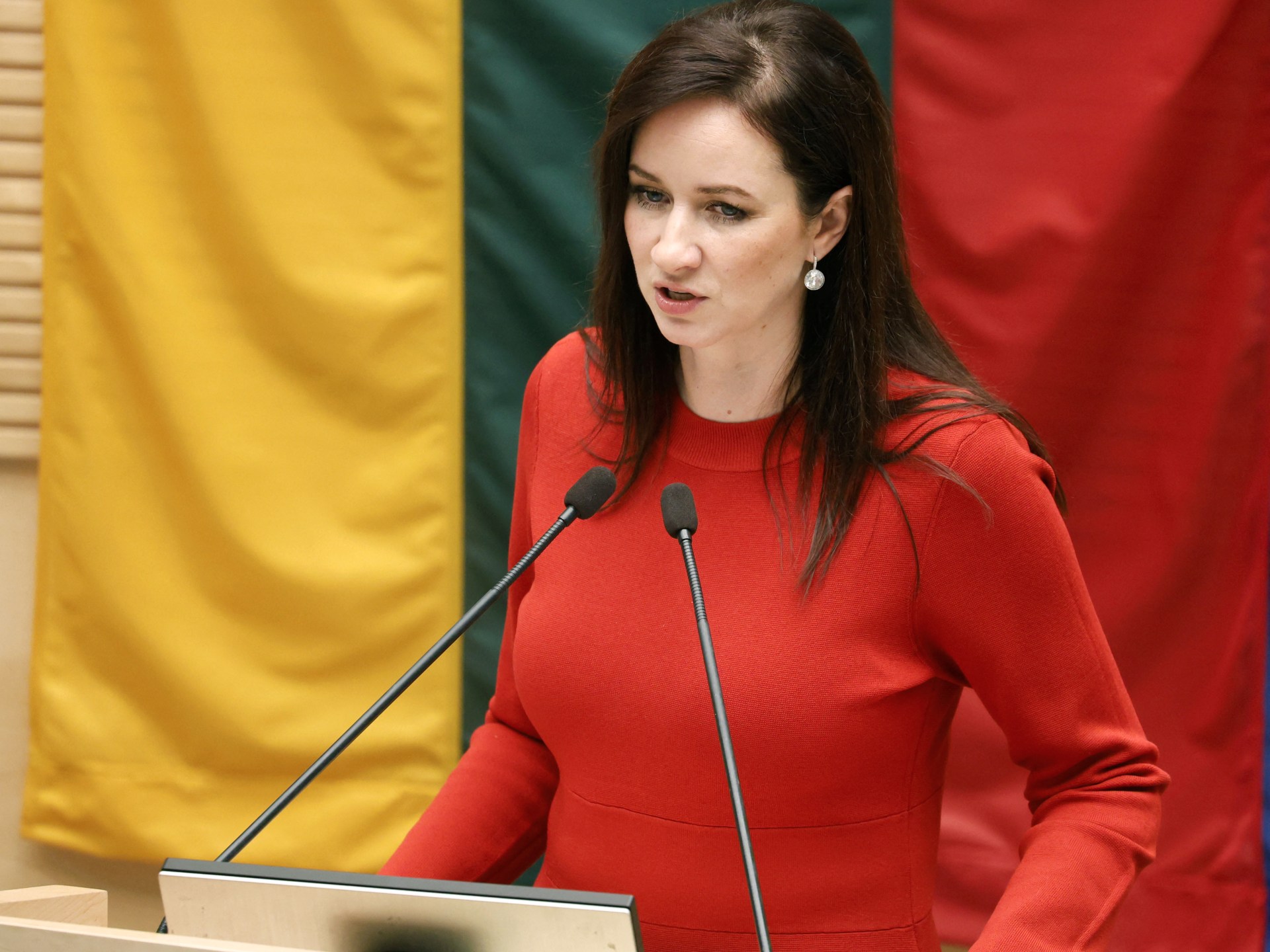
Lithuania has declared an “emergency situation” over an influx of meteorological balloons launched from neighbouring Belarus.
The declaration by Prime Minister Inga Ruginiene on Tuesday came amid growing tension between Lithuania and its neighbour over the balloons, which have previously been used to smuggle cigarettes but are now suspected to be operated by Belarusian security services.
list of 4 itemsend of list
Vilnius has accused Minsk, a close ally of Russia, of mounting a “hybrid attack”, with the flights into Lithuanian airspace leading to the repeated closure of the country’s airports in recent months.
“In combating the Belarusian hybrid attack, we must take the strictest measures and defend the areas most affected,” Ruginiene said.
“All institutions are joining forces to address the threat posed by smuggling balloons.”
The balloons are widely used by smugglers to illicitly transport cigarettes into Lithuania, but Interior Minister Vladislav Kondratovic said it is believed that Minsk is involved in orchestrating the flights.
The emergency declaration will allow the military to take part in border patrols alongside police and border guards.
Meanwhile, prosecutors have launched an investigation, and the secret services will provide information about the connection with the Belarusian state, the minister added.
The measure comes amid widespread concern in Europe that, as its war in Ukraine grinds on, Russia is increasingly using hybrid warfare, including sabotage and espionage, and testing of NATO defences.
Tension is particularly high in Europe’s eastern stretches that border Russia and Belarus.
Lithuania declared an emergency in 2021 due to an influx of migrants across its border with Belarus, which it also described as a hybrid attack.
Poland has been tussling with a similar situation in recent years.
In October, Lithuanian authorities temporarily closed two border crossings in response to the airspace violations by the balloons, measures that Belarusian President Alexander Lukashenko denounced as part of a “hybrid war” against his country.
According to the Lithuanian government, Vilnius international airport has been closed for more than 60 hours since October due to the threat posed to civil aviation by the balloons, affecting more than 350 flights and approximately 51,000 passengers.
The “emergency situation” is one step below a “state of emergency”, which can only be declared by the parliament when the country’s constitutional order is imperilled, the AFP news agency reported.
Lukashenko responded to the declaration, saying Lithuania was exaggerating the issue.
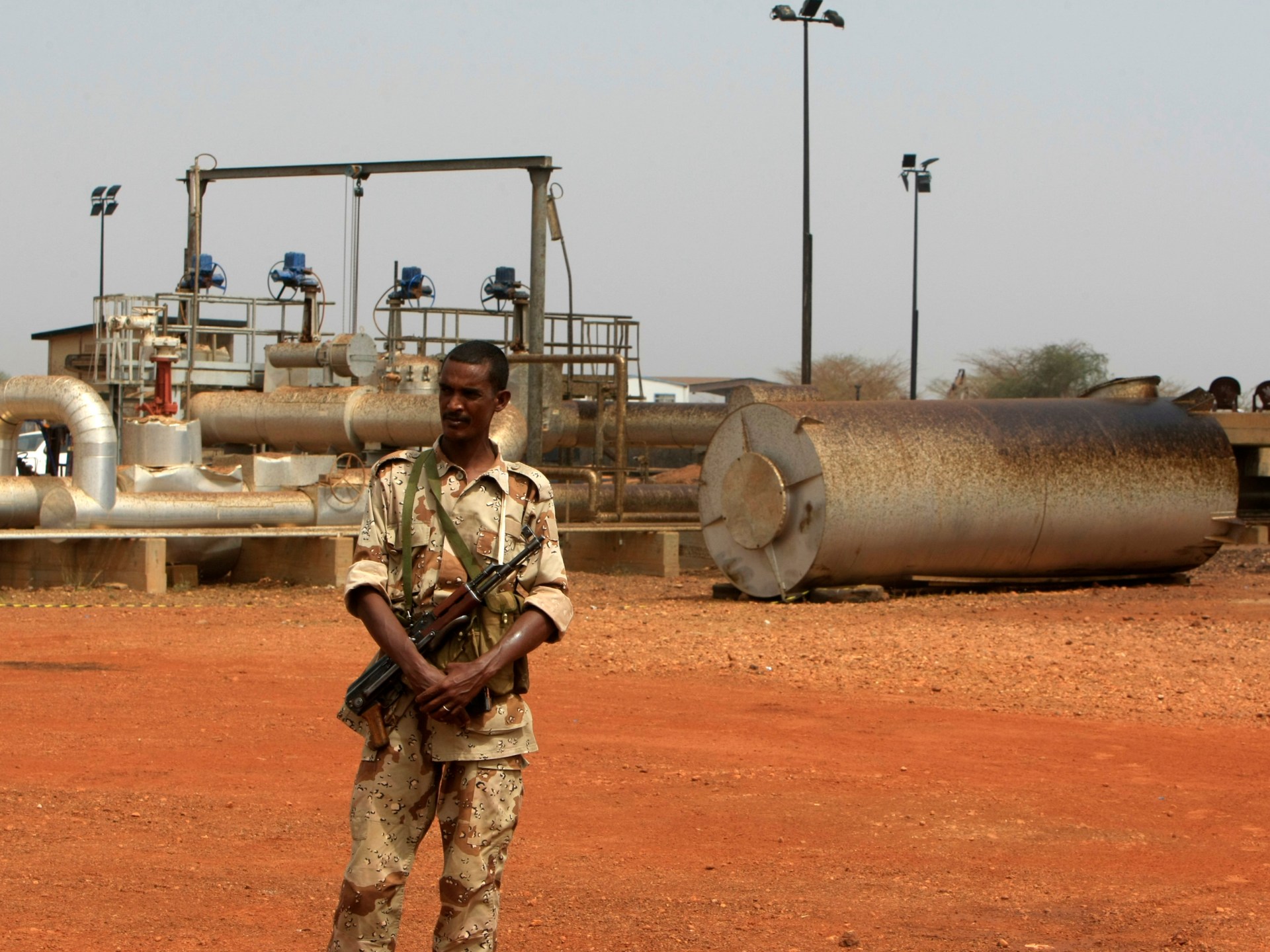
The Rapid Support Forces’ control of the Heglig oilfield means that the most important functioning oil facility in Sudan has fallen outside the control of the central government, with production halted and workers evacuated towards neighbouring South Sudan.
The importance of this event is not merely symbolic; Heglig is a strategic hub on three levels:
list of 4 itemsend of list
The Heglig field processes between 80,000 and 100,000 barrels per day for the benefit of Sudan and South Sudan, and the pipeline to Port Sudan passes through it. This means that its loss delivers a direct blow to what remains of the Port Sudan government’s cash revenues – including fees from the transit of South Sudanese oil.
Heglig represents the last major strategic position for the army in West/South Kordofan after the fall of el-Fasher, the capital of Darfur, and Babnusa in West Kordofan. The army’s withdrawal from the field – even if justified as being for the “protection of facilities” – reflects a shift in the balance of power in the region in favour of the RSF and their allies.
The Heglig field is highly sensitive as it is part of a shared oil network with South Sudan. And historically, it has been a point of dispute between Khartoum and Juba (the 2012 crisis being an example). Now, it has become the subject of a new contention between Sudan’s army and the RSF, with a third harmed party being the government of Juba.
In this sense, the fall of Heglig will raise the cost of continuing the war for the government to an unprecedented level since April 2023, as it strikes at the last “economic pillar” on which the army’s authority in the east and north could rely.
From a politico-military perspective, the effect of losing the Heglig oilfield can be read in three overlapping directions:
First: strengthening the RSF’s ability to impose new negotiating realities. After the fall of el-Fasher in October, talk began that the RSF was working to consolidate a semi-autonomous “Darfur/Kordofan region” as a base for later pressure on Khartoum. Control of Heglig will undoubtedly give the RSF economic weight and allow its leader Hemedti to claim that he controls not only territory but also a strategic resource equivalent to a “state card”.
Second: The control of Heglig restricts the army’s ability to finance its operations and maintain local loyalties, confirming that this loss comes after losing most of Darfur’s and western Sudan’s gold to the RSF and its networks. This now means that the army’s resources will rely on foreign support, seeking war funding and procuring weapons and equipment from abroad. In the future, Khartoum will also have to depend on internal taxation in the east and north – namely, what remains of South Sudan’s oil transit fees, if they continue. This places a major challenge before the army’s ability to sustain a long war of attrition with the same momentum.
Third: The possible shift of the main battlefront between the army and the RSF to the “el-Obeid – Kadugli – Dilling” axis. Field analyses reported in recent news coverage suggest the RSF will use its momentum in Heglig to advance towards Dilling and Kadugli, and possibly Abu Jubeiha, in preparation for strangling el-Obeid. This would mean that the Battle of el-Fasher was the “battle of the west” and the Battle of Heglig could be the “gateway to the south-central battle”.
However, it is important to note that holding Heglig does not mean the RSF can immediately exploit the oil, given the evacuation of the technical staff to South Sudan. The technical complexities of operating the entire pipeline mean that, for now, control is more of a disruption and pressure card than a stable production asset.
In the short term, the greater effect will be depriving Khartoum of revenue, not efficiently transferring it into the RSF’s coffers.
All indicators suggest that the cost of continuing the war for the government is rising both economically and politically, but this does not automatically mean an immediate readiness for settlement, for the following reasons:
The military leadership’s discourse in Port Sudan is still based on the idea that any early settlement with the RSF would mean rewarding a “rebel militia” and possibly the end of the historical army. Therefore, the decision tends towards continuing the fighting despite the high economic cost, in the hope of greater external support or internal shifts within the opponent’s camp.
The army is also betting on clearer support from certain regional countries, such as Egypt, and some international powers that see the RSF as a threat to their own regional security. Meanwhile, the RSF is betting that control over territory and resources will make many capitals deal with it as a reality that cannot be ignored.
The fall of the city of el-Fasher militarily, followed by the fall of the Heglig oilfield into RSF hands, may not yet push both sides to a serious negotiating table; rather, violations and massacres may increase. This suggests that Heglig alone will not be enough to pivot towards a settlement, but it does accelerate the exhaustion process that could make regional and international players more insistent on negotiations.
There is no doubt that the battle of Heglig, which was decided in the RSF’s favour, will increase economic pressure on General Burhan’s government and weaken its position, but the shift towards accepting serious negotiations depends on the accumulation of such defeats combined with external pressure from sponsoring states, rather than on this single event.
How will the balance of power be redrawn?
If we place the fall of the Heglig oilfield on a timeline alongside the fall of el-Fasher, a broader picture emerges: El-Fasher was the last major army stronghold in Darfur; its fall after a siege lasting more than 500 days made it difficult to imagine the army’s return to the region in the foreseeable future, and opened the door to the emergence of a de facto entity led by the RSF.
Human rights reports and United Nations monitoring referred to large-scale massacres, forced displacement, and the intensive use of drones by both sides, with attacks on medical facilities and schools.
The RSF’s decisive victory in el-Fasher accelerated the shift of confrontation to Kordofan, which acts as a “bridge” between the west and the centre. The RSF’s movements in West and South Kordofan, allied in some areas with the Sudan People’s Liberation Movement–North (al-Hilu), have turned the region into a knot of three-way conflict: The army, the RSF, and an armed movement with a longstanding political project.
Redrawing the map of control remains highly complex; some media reports suggest that the possibility of dividing Sudan into a north and east under army control, and a west, most of Darfur, and wide parts of Kordofan under RSF control and its allies, has become increasingly noticeable.
This scenario means the war has entered a phase of “regional geopolitics” rather than merely being a battle over Khartoum. In this context, Heglig is not just an oil target, but a link in a project of regional expansion parallel to the central state.
In recent weeks, multiple indications of the new United States administration’s role have emerged, stated more than once by the president, especially during his meeting at the White House with Saudi Crown Prince Mohammed bin Salman, who invited President Trump to intervene personally to help end the war in Sudan, within a four-party coordination framework (Saudi Arabia, UAE, Egypt, US).
US Secretary of State Marco Rubio has said Trump “is personally overseeing efforts to end the war in Sudan”, along with a warning to Sudan against allowing Russia to have a naval base on the Red Sea.
International newspapers reported last week that the Sudanese government in Port Sudan offered Russia a 25‑year agreement to establish its first naval base in Africa, granting Moscow access to the Red Sea, in addition to gold mining benefits. These reports suggest that the base would give Russia a strategic foothold to monitor navigation to and from the Suez Canal, a development that worries the US, which is competing with Moscow and Beijing for military influence in Africa. In return, Sudan would receive Russian weapons and air defence systems at preferential prices to confront the RSF. However, Sudanese officials warn that the deal could expose the country to problems with Washington and the European Union. US officials and military experts believe a Russian base in Port Sudan would enhance Moscow’s ability to project power in the region and raise its international standing.
It seems clear that President Trump’s administration will not take any decisive steps to intervene to end the war unless the Russian base project is completely frozen. Washington sees the proposed agreement as a direct threat to its interests in the Red Sea and to its strategic superiority in global trade routes, and considers allowing Moscow a permanent foothold on Sudan’s coast as a development that shifts the balance of power in the region in favour of Russia and China.
The battle of Heglig and its surroundings reveals a more dangerous reality: The rise of the “war economy” logic in Sudan.
The RSF now control gold resources and informal trade routes, and are extending towards oil, while the army dominates ports and taxes in the east and north, and other armed movements retain local resources in their areas of influence. This fragmentation of resources deepens the model that feeds and sustains war, in which natural wealth becomes a tool of negotiation, a weapon, and a source of legitimacy. In this context, control of Heglig seems to be another step in the path of “commodifying the state” – turning oil and gold into an institutional substitute for the state itself.
Even if a ceasefire is imposed under international pressure, or an overarching political deal is reached, the persistence of these armed‑economic networks will leave Sudan vulnerable to repeated rounds of violence whenever disputes arise over revenue distribution. The state is in retreat, resources are turning into spoils, and militias are becoming parallel economic structures. Therefore, any peace path that does not fundamentally deal with the war economy – through dismantling, regulation, and restructuring – will only lead to a temporary truce preceding a new explosion.
In conclusion, the advance of the RSF and their control of Heglig represents a decisive turning point that deepens the imbalance of power and weakens the last pillars of the government’s economy, thereby increasing the cost of war for Khartoum and bringing closer the moment of negotiation – although the event alone is insufficient without cumulative gains on the ground and simultaneous international pressure. Between the fall of el-Fasher and Heglig, it becomes clear that Sudan is heading towards a spatial fragmentation into spheres of influence rather than experiencing a traditional war targeting the capital. This reality imposes a new approach to peace that goes beyond the binary of the two generals: al-Burhan and Hemedti. In this context, the involvement of President Trump in the crisis could be a catalyst for a new negotiation track, but its success will remain dependent on his ability to support a broader internal Sudanese process that engages civilians and addresses the roots of the conflict, foremost among them dismantling the war economy that spurs the continuation of the dispute.
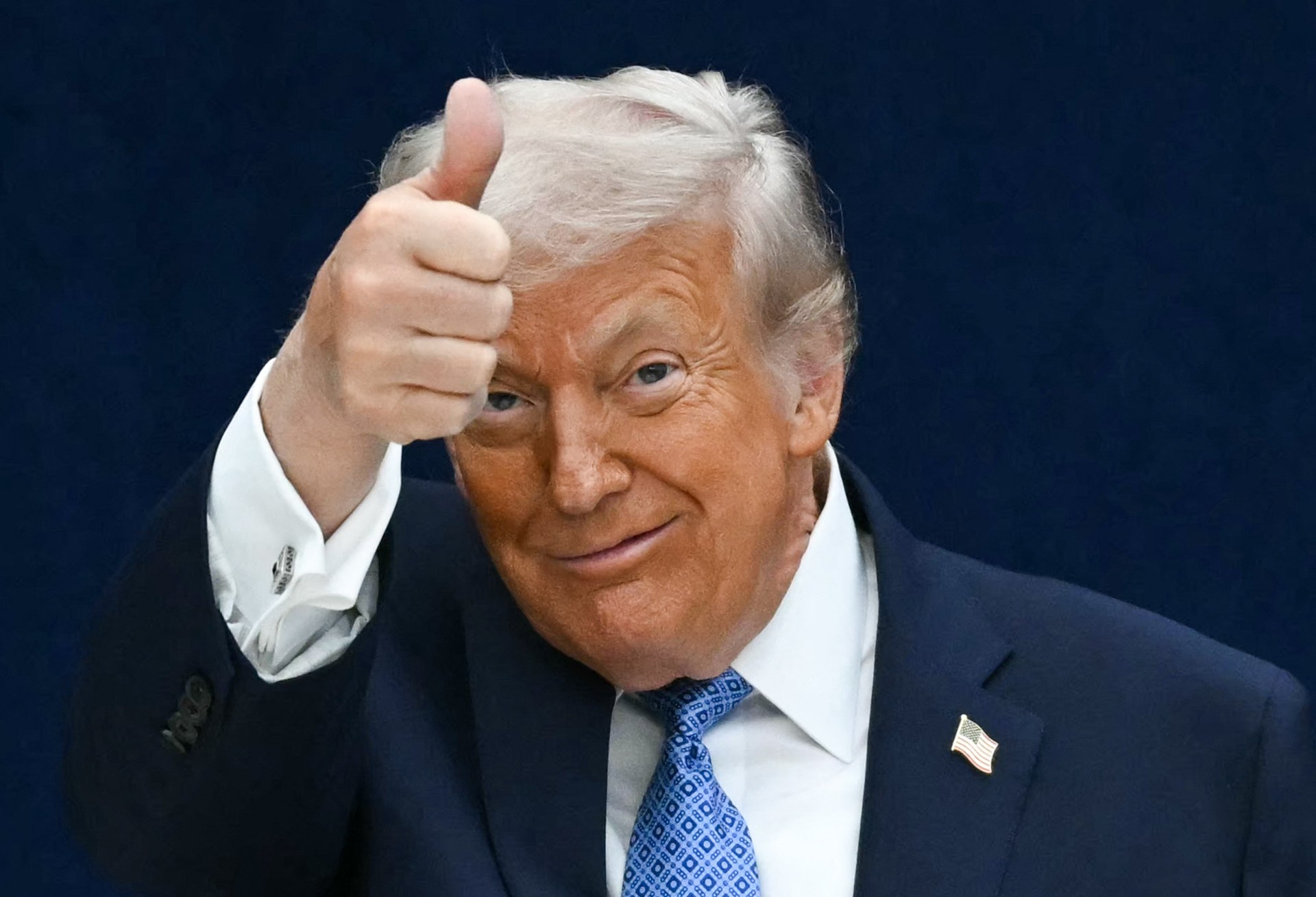
Deadly fighting has erupted between Thailand and Cambodia, weeks after the two sides signed a ceasefire deal in Malaysia presided over by United States President Donald Trump.
Now the Trump-brokered peace agreement is on the brink of collapse after soldiers from the two Southeast Asian neighbours clashed again on Monday. At least 12 people have been killed and thousands displaced from both sides as clashes continued for the second day.
list of 4 itemsend of list
Nearly 50 people were killed and 300,000 displaced during the five-day fighting in July before Trump intervened to broker a ceasefire.
Trump has claimed to have stopped at least eight wars since he took office in January. But several of the conflicts he claimed to have resolved continue to fester.
Since the multi-phase Gaza ceasefire deal was announced by the US president in October, Israel has killed more than 400 Palestinians in violation of the deal. He mediated a deal between the Democratic Republic of the Congo and Rwanda in October, but that has not ended the fighting.
The latest clashes have threatened to shatter Cambodia and Thailand’s delicate truce, which was first agreed in July before an expanded version was signed in October in a meeting attended by President Trump.
“I am pleased to announce that, after the involvement of President Donald J Trump, both Countries have reached a CEASEFIRE and PEACE,” Trump had posted in July. “Congratulations to all! By ending this War, we have saved thousands of lives.”
Below are the main points about the ceasefire:
An analyst told Al Jazeera that the fragile ceasefire was “forced” under threat of Trump tariffs.
“For all of us who are keen observers, the ceasefire was forced by the Trump administration and Trump’s involvement,” Virak Ou, the founder of Cambodian think tank Future Forum, told Al Jazeera.
When Trump got involved, Ou said, the Thai military – a powerful player in Thailand’s political landscape – was “not happy”. He added that ASEAN monitoring observation teams have not been empowered with enough resources to enforce the truce, while rising nationalism in both countries has also fanned the flames of the conflict. The Association of Southeast Asian Nations (ASEAN) is a group of 11 regional nations.
“What I fear is that we’re now going to see, potentially, much longer, much deeper fighting – and that could last longer and have far deeper consequences,” Ou said.
The US president has claimed to have played a role in stopping or resolving wars or conflicts as follows:
• Thai-Cambodia border clashes
• Armenia and Azerbaijan deal
• Rwanda and the Democratic Republic of the Congo agreement
• Israel and Iran ceasefire
• Israel’s genocidal war on Gaza
• India and Pakistan truce
• Egypt and Ethiopia tensions
• Serbia and Kosovo conflict.
Some of the wars Trump claims to have ended are ones he participated in himself. His role in some other ceasefires is disputed. Still, there are other conflicts where the involved parties do credit him with playing a key role as mediator.
Trump said he deserved to win the Nobel Peace Prize for ending the wars.
While US weapons and the country’s ironclad diplomatic support for Israel have been critical in Israel’s genocidal war on Gaza, Trump is also widely believed to have pressured Israeli Prime Minister Benjamin Netanyahu more than his predecessor, Joe Biden, to end the Gaza war.
The war between Iran and Israel in June ended with a ceasefire brokered by Trump. But the bout of fighting, which started with Israel striking Iranian nuclear facilities, killing scientists and bombing residential neighbourhoods, also included the US as an active participant.
Trump took part in it by ordering his military to strike three Iranian nuclear sites. Iran struck back by hitting the largest US military base in the Middle East, in Qatar, before the ceasefire was announced.
In May, India and Pakistan waged an aerial war, bombing each other’s military bases. India said it also hit “terrorist” bases in Pakistan and Pakistan-administered Kashmir, while Pakistan claimed India killed dozens of civilians.
Ultimately, Trump announced a ceasefire after four days of fighting. But while Pakistan credits the US president for helping halt the fighting, India insists he had no role.
The hostilities between Cambodia and Thailand ended after phone calls from not only Trump, but also mediation from Malaysian Prime Minister Anwar Ibrahim and a delegation of Chinese negotiators. So far, only Cambodia has thanked Trump for his role.
Relations between Serbia and Kosovo have been tense since the early 2000s. The European Union and NATO have always been key mediators in this region. Kosovo and Serbia signed a deal in 2020 under Trump during his first term. While relations remain tense, the two have not been involved in a full-blown war since Trump’s return to power.
Trump says he ended a war between Egypt and Ethiopia. But while the two nations have had tense relations, especially over a hydroelectric dam which opened on a tributary of the Nile River, they have not been in any war.
Rwanda and the DRC signed a peace deal in June, brokered by Trump. The ceasefire is fragile and tensions between the two countries remain high. DRC on Tuesday accused Rwanda of violating the peace deal.
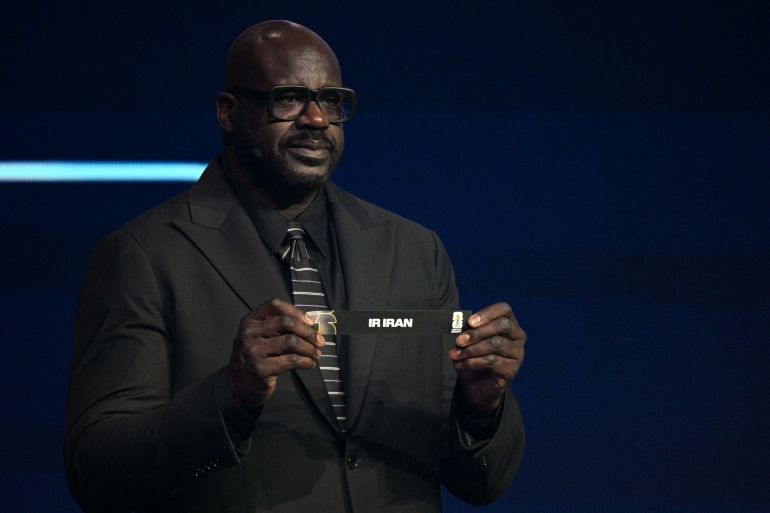
Iran’s football chief has objected to the “irrational” branding of its World Cup 2026 match against Egypt, which local organisers in the United States have suggested will be held in support of the LGBTQ community.
The organising committee in Seattle, Washington state, where the match is scheduled to take place next year, had previously announced their intention to hold a “Pride Match” coinciding with the northwestern city’s Pride Weekend in late June.
list of 3 itemsend of list
Following last week’s FIFA tournament draw, Egypt and Iran are now slated to face off in Seattle on June 26, the Friday before.
The head of Iran’s Football Federation, Mehdi Taj, was quoted by local news agency ISNA as saying Tehran and Cairo had both raised “objections against the issue”, which he labelled an “irrational move that supports a certain group”.
Taj did not mention the specific branding of the fixture.
On Monday, Iranian state television said Tehran would “appeal” against FIFA over the matter.
Homosexuality is illegal in Iran under Islamic law and can be punishable by death.
The Egyptian Football Association has voiced similar objections, according to local media reports citing unnamed sources.
In Egypt, homosexuality is not expressly outlawed, but is often punished under loosely worded laws prohibiting “debauchery”.
The 2026 World Cup will mark Iran’s seventh participation in the tournament, which will be jointly hosted by the US, Canada and Mexico.
Iran and the US have had no diplomatic relations since 1980, following a hostage crisis in the wake of the 1979 Islamic revolution.
Iran had initially opted out of Friday’s draw to protest against the US refusal to grant visas to several members of its delegation, but eventually reversed its decision.
On Tuesday, Taj said some Iranian players might face visa problems over their service in the Iranian military, which includes the Islamic Revolutionary Guard Corps (IRGC) – designated a “terrorist organisation” by the US in 2019.
“For the World Cup, we must work on having replacement options, and we have already started that,” he said.
Iran is drawn in Group G with Belgium, Egypt and New Zealand in the 39-day tournament, which runs from June 11 to July 19.